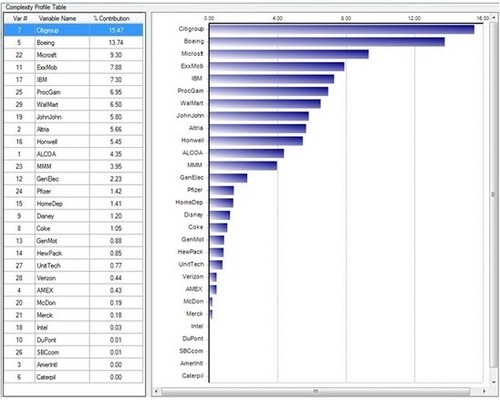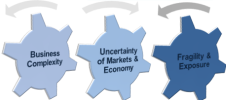Growth, Transformation & Progress
Monday, 21 October, 2013 Leave a comment
There are many good reasons to question what we are taught and (yet again) Giles Hutchins tells it how it is. Of course, if you read any of my past blogs, particularly dealing with Panarchy and the Panarchic Cycle, it wont come as a great surprise that we are ‘on the same page’.
I frequently ask myself and others, “how do you know what you know”? The reason is so that we question, not just the basis of our knowledge but that of those who would presume to ‘educate’. Given that we now understand so much more about the, miraculous, fractal nature of our own biology and the striking similarities in structure and cycles affecting other systems seen in Nature, it is surprising that we are still prone to work against Nature by attempting to apply our linear thinking in an effort to control or regulate.
It is, perhaps, no great surprise that the knowledge of subject matter experts can often be seen to be ‘lacking’ or based upon knowledge that has been superseded but that vital information has not reached them or has not penetrated the walls of conventional wisdom…or herd mentality, i.e. the belief system that is the basis of their status as experts. They continue to infect enquiring minds with tainted knowledge, rather than understanding: the blinded leading the blind.
Of course there are those who, knowingly and without conscience, indoctrinate others, in return for the promise of rewards in this life (or the next). These individuals will go to extreme lengths to satisfy their master(s) so the question is worth remembering the next time someone presumes to tell you ‘how it is’…because greed, fear and ego are powerful drivers and many have been ‘blinded’ in the pursuit of truth and understanding!
…in these transformational times, organisations and their leaders need to embrace transformational change: death/rebirth, breakdown/breakthrough. In the words of Dawn Vance, Global Head of Logistics for Nike:
‘Organisations have three options:
1) Hit the wall;
2) Optimise and delay hitting the wall;
3) Redesign for resilience.’
Many organisations today – for profit and non-profit – busy themselves with optimising the existing business model which is only delaying the inevitable car crash


 Based on how close a system functions to its critical complexity one may infer its “state of health” or resilience. Resilience is of great importance since it reflects the system’s ability to maintain functionality in the presence of sudden and unexpected events (shocks). Our turbulent economy will be characterised by and increasing number of shocks of growing intensity. This is because it is highly interconnected and, at the same time, fragile.
Based on how close a system functions to its critical complexity one may infer its “state of health” or resilience. Resilience is of great importance since it reflects the system’s ability to maintain functionality in the presence of sudden and unexpected events (shocks). Our turbulent economy will be characterised by and increasing number of shocks of growing intensity. This is because it is highly interconnected and, at the same time, fragile.














